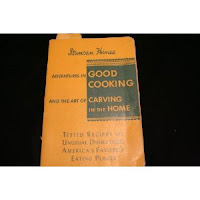Since it's Thursday afternoon (between 3 and 5 p.m.), I am sitting in Wallace 342-A, waiting to see if any HNFE folks will drop by to research, seek library help, or just talk! While I'm waiting (and since it's pretty quiet in here), I'll send out one of my fabulous research tips to
you all! So, my expert research tip for today is:
Whenever you're involved in a research project, always keep a running list of the terms/phrases you've searched for, where you've searched for them, and what results you got. In other words: organize your work.
While this may seem kind of middle school-ish, and like it would take a lot of extra time, I can tell you from personal experience that it will actually SAVE you quite a bit of time. When I was the Food & Nutrition librarian at LSU, I also taught a 1-credit research methods course. In this course, I had my students work on a research project all semester, writing weekly journal entries about their project. At the end of the course, they had to turn in a spreadsheet that gave me all the information about their research: terms used, places searched, and results from the searches. Before I taught this class, I never actually did this myself; however, I thought that I should have some experience doing what I expected my students to do. I'm so glad I gave it a try, because it's been a research technique that I've used ever since.
I don't use Excel, or anything fancy at all; I simply use a Word document where I list out all my keywords and phrases, and then the synonyms/subject headings that I find. This system has afforded me the following benefits:
1. I never repeat searches that were unfruitful, simply because I forgot
2. I am constantly adding to my vocabulary bank for my research, which will only ensure that the literature I find is in-depth and versatile
3. It can help me in the future, when I decide to build on research that I may have completed some time ago
4. When it comes time to write an abstract or summary, I can easily do this, since I have a record of my summarized thoughts
5. It just makes me feel more organized, and more confident. I feel less harried, and more on track in my research when I have concrete evidence of what I'm accomplishing.
There are, of course, bibliographic managers and database tools that allow you to do this, to some extent. However, you can organize your research with a simple word processor and a little time, up front. Give it a try!
Oh, and come see me during librarian office hours before the semester ends!










































